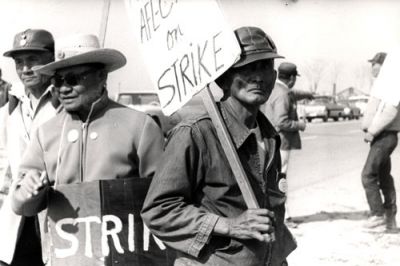Economists for AB32
A few days ago I joined a set of well known academic economists and signed this letter to Governor Brown. The NRDC has a nice post about the issues available here. Everyone who knows me, knows that I’m a proud University of Chicago Ph.D. economist and that my support for free markets and individual freedom often places me to the right of my University of California colleagues. So, why do I support AB32? Isn’t it a step towards “green communism”? Wouldn’t it make Hayek and Friedman sick to their stomachs?
No.
Two major ideas in modern economics (often associated with the Conservative Nobel Laureate Edward Prescott) are “rules of the game” and “time consistency”. By “rules of the game” and “time consistency”, I mean that regulators must send clear, consistent signals to the investment and household sector. If the ARB’s Carbon cap and trade market gets up and running and if California firms and households are aware that the price of emitting carbon is slowly rising over time, then this creates strong incentives to adapt to these new market realities. When firms are given a 5 to 10 year “heads up” about anticipated regulation, they can’t claim that they can’t comply with these regulations. There will be short term adjustment costs but why do polluters have the property rights to pollute? There is a debate taking place concerning how many permits will be freely allocated to industry but this is simply an issue of distributional effects. Will the ARB “purchase” the buyin by industry by giving them a $ piece of the auction revenue? There will be a bargaining game over whether this share should be 1% or 65%.
This cap and trade program is a credible market signal to “change your game” and I am highly optimistic that California’s households and firms are up to the challenge. If there are incumbent firms who cannot adapt then in competition they may exit the industry but new firms who don’t exist right now will take their place. Capitalism always features job creation and job destruction and I am optimistic that once investors are certain that AB32 will be implemented that you will investors who are not named “Al Gore” stepping up their efforts to decarbonize.
California has major amenity and productivity advantages that make me confident that all jobs are not heading to Texas. There is an open question of which “green jobs” will locate in California rather than locating elsewhere and exporting their low carbon products to California. Ideally, our well educated work force would be an attraction for such firms but this is an empirical question.
For those economists who oppose AB32, what is your evidence that this regulation will be highly costly? What is your model of firm and household behavior that features such small behavioral elasticities? In English, if you own a Hummer — must you always drive that car or under new AB32 incentives will you substitute to something with a higher MPG? Will this substitution cost you greatly in terms of utiles? It will save you $ at the pump. Who is so inflexible in California that they can’t change their game when they have an incentive to do so. Critics, please “name names” and explain why those you name can’t adapt to the new “rules of the game”.







Reader Comments